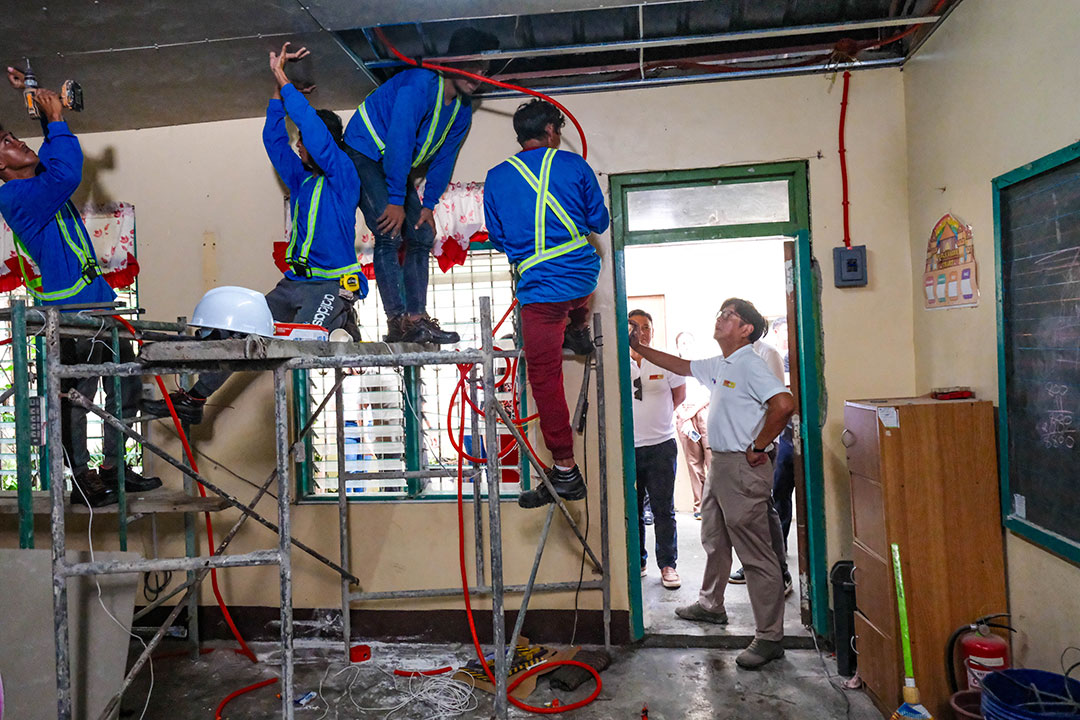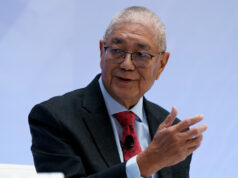Marcos vows to fix teacher shortage, overwork as schools open on June 16

PHILIPPINE President Ferdinand R. Marcos, Jr., on Monday reaffirmed his commitment to fixing the country’s chronic teacher shortage, estimated in the tens of thousands, as public schools prepare to welcome about 27 million students on June 16.
During an inspection in Malolos, Bulacan north of the capital for the Education department’s Brigada Eskwela (Student Brigade) program, the President cited the dwindling number of public school teachers.
“One of the things we really lack is teachers,” he said in Filipino, based on a transcript sent by the presidential palace. “Secretary [Juan Edgardo M.] Angara has a program to reduce the administrative duties given to teachers because you became a teacher to teach, not to do bookkeeping.”
Brigada Eskwela, which runs from June 9 to 13, brings together teachers, parents and volunteers nationwide to prepare public schools for the school year. Parents and students are encouraged to help clean the classrooms, paint the walls and chairs and replace broken fixtures like electric fans and window screens in the face of scarce public funds.
In a separate inspection in San Miguel, Bulacan, the President said the government hired 20,000 new teachers to meet the demand and ease their workload.
He said many school buildings built during the rule of his late father and namesake in the 1970s remain in use even if these were meant to last for 20 to 30 years. “They’re still functional, but we need to seriously look at rehabilitating many of them,” he added.
Mr. Marcos flagged poor sanitation conditions on some campuses, particularly inadequate bathroom facilities and lack of running water, issues he called fundamental to student health and safety.
“That’s not hard to do, except the problem in the schools we visited is that there is no water,” he said. “We have to look into it. Why is there no water when they are paying for the water supply?” he asked in Filipino.
“For me, it’s basic because the children’s health is being affected. They get sick if the bathrooms they use are not clean,” he added.
To help bridge the digital divide, the President cited efforts to integrate technology into classrooms, citing learning platforms such as Khan Academy and the deployment of Starlink satellite internet to connect remote schools.
“Technology is here,” he said. “All you need to do is set it up and plug it in. Wi-Fi is ready. We’ll be rolling this out especially in far-flung areas.”
The president paid tribute to educators, calling them the “real heroes” of the nation. “You became teachers not to get rich or famous, but because you can’t sleep at night unless you’re teaching.”
“Our teachers are truly excellent; it’s likely just a lack of support that’s holding them back. We will give you that support, not just financially, but also through retraining. That’s why we’re working to reduce your administrative duties and similar tasks, so you can focus on teaching effectively,” he added.
A January 2025 report from the Second Congressional Commission on Education (EDCOM 2) has warned about the dire state of basic literacy in Philippine public schools, with students falling four to five years behind the expected reading proficiency for their grade levels.
EDCOM 2 recommended a “teach-at-the-right-level” approach, tailoring instruction to students’ actual learning needs rather than their age or grade. The commission also called for stronger support from the Department of Education in enforcing remedial and foundational programs.
Meanwhile, Mr. Angara told reporters during the same inspection that classes would start on Monday despite the rain.
“It’s already a bit rainy but not as intense as last year,” he said in Filipino, based on a video sent by the palace to reporters. “In 2024, when we opened the school year, almost the entire Metro Manila and [Region IV-A] were flooded.” — Chloe Mari A. Hufana



